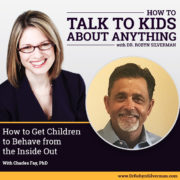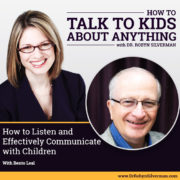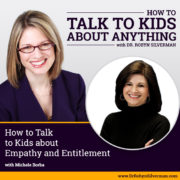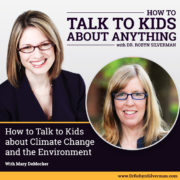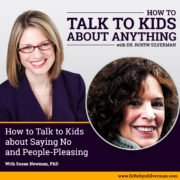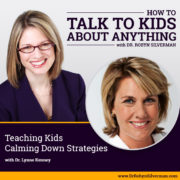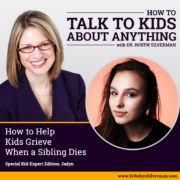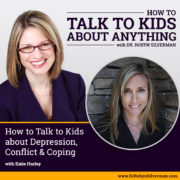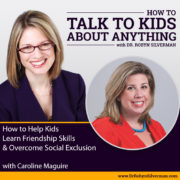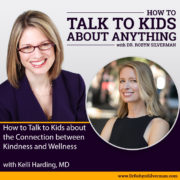Typically, our experts are best-selling authors and top experts who have studied a topic for many years as a researcher, writer, professional and adult. But sometimes, our best experts are the children themselves who are going through a unique situation that make it so only a small portion of people like them would understand.
Every once in a while, I will be putting in a special kid edition of How to Talk to Kids about Anything so that we get this “expert” “in-the-trenches” view of what it’s like to be on the other end of these conversations with insights on what kids really need, want and would ask for from us, as adults, if we would be open to it. And- we are open to it, aren’t we? So here we are with this first kids’ edition of the How to Talk to Kids about Anything podcast—and you’ll see why it’s so important that we ask a teen who is going through this journey to talk about her views, take-aways and tips—so the adults who find themselves in a helper role such as this, are prepared.
When people hear that one of my dearest friends suffered the loss of her 13-year-old son, Gavin, after his 16-month battle with Ewing’s Sarcoma, they often say something like; “no parent should experience the death of a child.” As a mother and a best friend, I agree. It is heart-wrenching and tragic and makes me cry in random moments as it just happened in August of this year. But there is a secondary loss that many don’t often consider to the same degree, and that is the loss of a sibling. My bestie’s amazing 15-year-old daughter, Jadyn, who I am fortunate enough to have in my life as who I refer to as my “adopted niece” and she refers to me as her Aunt, is also suffering. She is learning how to live, love and find joy in this new normal and moving forward without her brother by her side.
Studies tell us that when a sibling passes away during childhood or the teenage years, it can have a profound impact on surviving children. The development of independence, romantic relationships and even career paths can be stunted or affected, risk-taking can either be triggered or severely reined in. Acting out can take the place of excruciating sadness.
The death of a sibling has also been associated with increased diagnoses of mental disorders such as anxiety, depression and disordered eating for living brothers and sisters. So how can we, as key adults in the lives of children- teachers, coaches, parents, mentors, aunts and uncles- help and support children and teens when they’ve lost a sibling or a very close friend?
We have the privilege of speaking directly with Jadyn today on a special kid edition of the podcast—understanding that one unfortunate way you become an expert in the topic of child or teen sibling grief is to lose your brother and sister during childhood or adolescence. This is a sensitive topic- but an important one to discuss as our guest is very focused on wanting to help others who are going through a similar situation.
Jadyn is a 9th grader in the prestigious BETA program in Florida. She has been writing for years to help other teens like her. Jadyn is a high-school athlete, playing volleyball and soccer. She is known by those around her as a loving sister, daughter, and friend. She is the author of the poem, Empty Space, about her experience with grief and losing her brother.
I am so more than a little touched to have my beautiful “niece” on the show today so Welcome Jadyn to how to talk to kids about anything!

